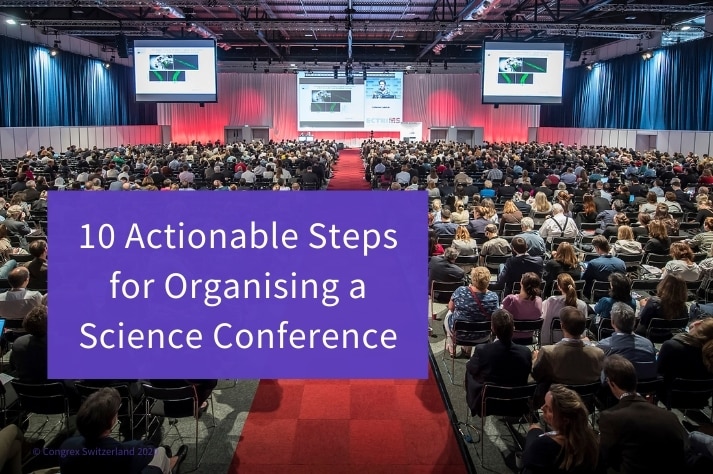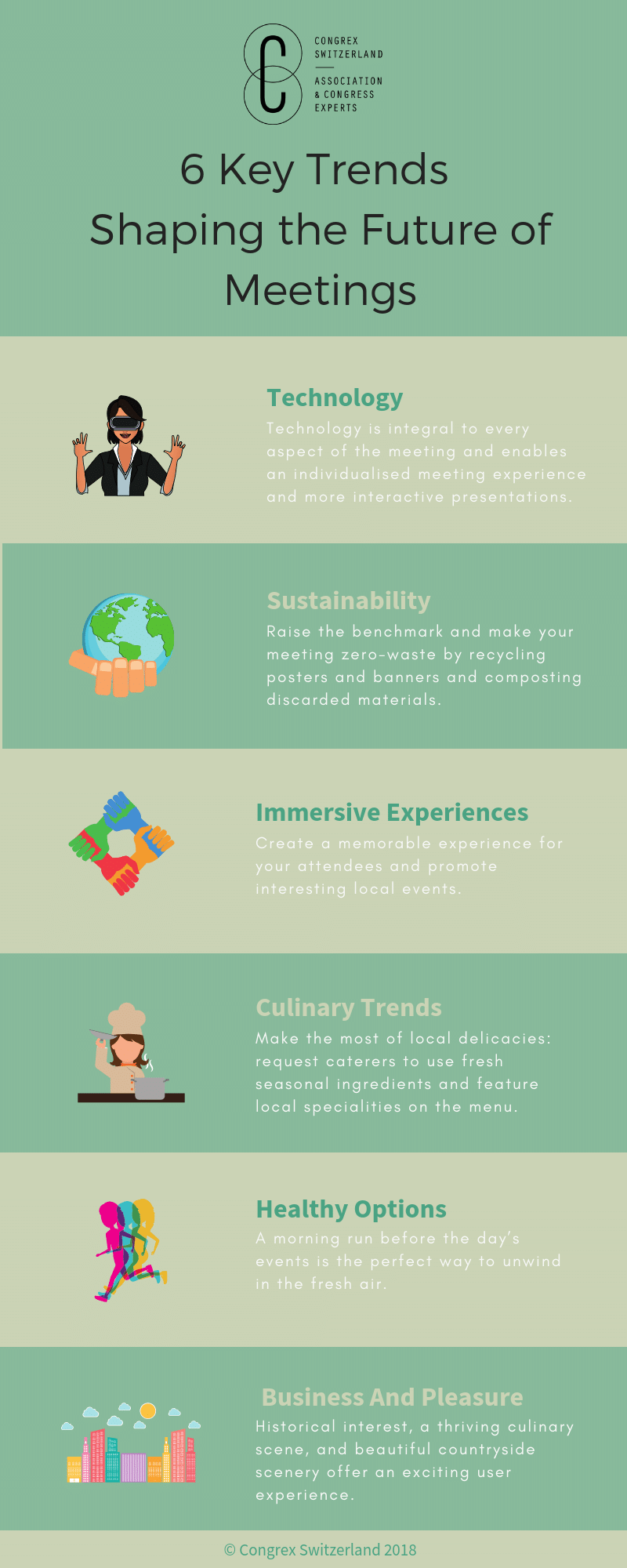Organising a science conference presents unique challenges. Discover the steps to mitigate the logistical challenges involved in organising academic conferences.
A science conference offers a platform for the science community to present their research findings and network with other experts in their field. However, hosting an academic conference can be daunting due to audience expectations. Most attendees are looking for interactive learning opportunities, cutting-edge discoveries in their fields and networking opportunities with researchers and science professionals.
Whether you are organising a multiple-day conference with hundreds of delegates or a simple workshop, the following steps will help you plan a successful meeting:
Organising a Science Conference
1. Focus on the Science
Science is a vital element of any scientific meeting. Attendees want a high-quality learning experience, and the level of science will define your event’s success. When determining the areas of study for the meeting, the focus should be on the target audience. What topic will attract significant interest? You can determine what your attendees want through a call for papers. However, new areas of study and emerging trends in a field of study often grab the audience’s attention. You should also bring the most sought after science professionals to speak at the conference. The goals should be to provide a hands-on interactive learning experience through presentations of research findings.
2. Have Adequate Planning Time
Academic conferences are not the regular industry meetings that you can put together in a few months. Scientific conferences take up to a year of planning, depending on the number of attendees. You need adequate time to organise the logistics like transport and accommodation of delegates and the conference venue. Besides, you need to call for papers, review and accept the submissions before the event. The professional conference also requires outstanding speakers, which takes time to find.
3. Find a Solution for Financing Your Science Conference
Aside from ticketing or registration fee, sponsors are the primary funding option for your conference. Most sponsors are looking for networking opportunities with their target demographic. When seeking funding, ensure your proposal highlights the benefits of sponsoring your event. Sponsors with a connection to your topic or field of study are likely to fund your event. It would also be prudent to reserve time for interactive training sessions, demos and industry talks. However, your sponsors should understand that the objective is to impart knowledge and not make a sale. Otherwise, few science professionals may turn up for the event. Please refer to these articles about conference sponsorship and download our White Paper:
- How to Secure Sponsorship In Times Of Online Events
- Create A Fantastic Sponsorship Proposal With These 5 Tips
- Six Ideas For Creating A Standout Event Sponsorship Proposal
- 4 Ways to Maximise Visibility For Your Sponsor
- How Event Sponsorship Benefits Your Business
4. Pick a Suitable Time and Venue
Date and time will determine the number of professionals that will attend your event. That is why you should not plan your academic conferences at the same time as other established conferences. However, you can team up with reputable conferences and have a satellite meeting within the main event. Established conferences give you exposure by attracting brilliant minds to your event. Besides, they have conference planners, which can save you time. If you are organising the academic conference alone, you need to choose the event’s perfect location. Travelling to the venue and accommodation should be affordable.
5. Prepare a Balanced Programme for the Event
People attend scientific meetings to learn and exchange ideas with members of the science community. While inviting influential keynote speakers will increase attendees, you need to create time for presentations of submissions. Your schedule should give adequate time to both senior and junior professionals to increase diversity. Apart from interactive learning, ensure you reserve time for socialising, breaks and networking.
6. Provide Multiple Learning Opportunities
The quality of your scientific conference is paramount in ensuring the attendance of experts in your field. You should also not limit learning opportunities in the sessions. You can create an online conference forum where collaborative learning will take place. If you cannot incorporate online conference facilities, you can avail videos to attendees that they can share. Virtual reality simulations and podcasts will also create diverse and interactive experiences.
Please refer to these articles about hybrid event solutions and download the white paper:
- How to Ensure Hybrid Conference Success
- The Ultimate Beginner’s Online Event Planning Checklist
- The True Value Of Digital Meetings For Participants
- Mitigate Online Event Risks by Developing Protocols
- 7 Tips to Improve Engagement in Virtual Events
7. Choose an Experienced Conference Planning Team
Organising a science conference needs a planning team with the necessary skills. You can delegate responsibilities to the committee depending on their skills and expertise. Some of the duties of the team include:
• Creating promotional materials and marketing the conference.
• Designing the conference website and publishing high-quality content.
• Finding sources of funds and managing finances.
• Reviewing paper submissions.
• Planning the schedule and communicating with invited speakers.
• and many more
RELATED: How A Professional Conference Organiser (PCO) Will Streamline Your Conference Financials
8. Ensure Your Planning Team Is in Constant Communication
Before the conference starts, the organising committee should have numerous planning sessions. Ensure everyone within the planning team is on the same page. Constant communication will help the team handle all aspects before the event. You can also assign additional responsibilities like supervising the registration process, introducing sessions and creating poster boards. Regularly evaluating the progress will also guarantee you cover every detail. The organising committee should maintain communication throughout the academic conference to ensure prompt resolution of any arising problems.
RELATED: Crisis Communication Beyond Lockdown: Future Outlook
9. Have Contingency Plans for Emergencies and Hygiene
Communicate with the attendees to ensure they are familiar with the emergency procedures in case of emergencies that require evacuation. Map out a communication plan to ensure you can reach your attendees at all times. Attendees should also be able to communicate with their family in case of an emergency. In addition, infection protection and hygiene protocols have to be in place.
10. Have a Post-Conference Plan
After wrapping up the conference, publish your conference proceedings in a journal or newsletter and ensure they are widely available on the website. You can also upload videos of the event on social media or the conference website. Email the attendees thanking them for attending your event and mention your plans for hosting a similar scientific meeting.
When planning a science conference, your main goal should be creating learning and networking experiences for your attendees. The above steps for organising an academic meeting will ensure your conference is in tune with the science community’s requirements. Get in touch with Congrex Switzerland, your professional conference organiser (PCO), for your tailormade science conference organisation.
——
Congrex Switzerland is an internationally operating agency delivering customised solutions. This encompasses the overall organisation of conferences and meetings, including the management of hotel rooms and the strategic consultancy. Annually Congrex Switzerland organises approximately 45 events with over 73’000 delegates. Amongst our clients are international associations, governmental organisations and corporations.








